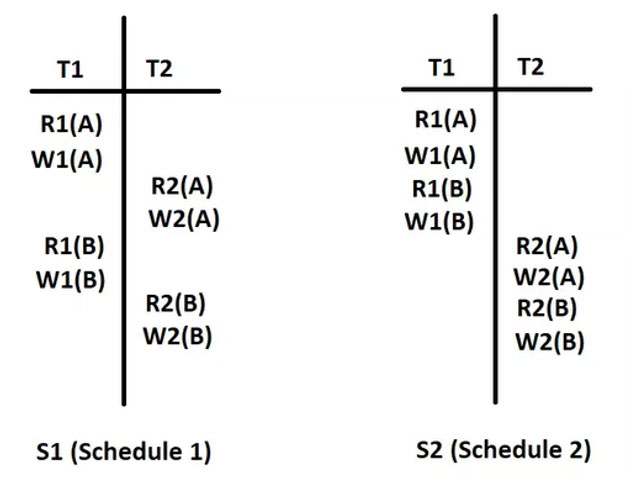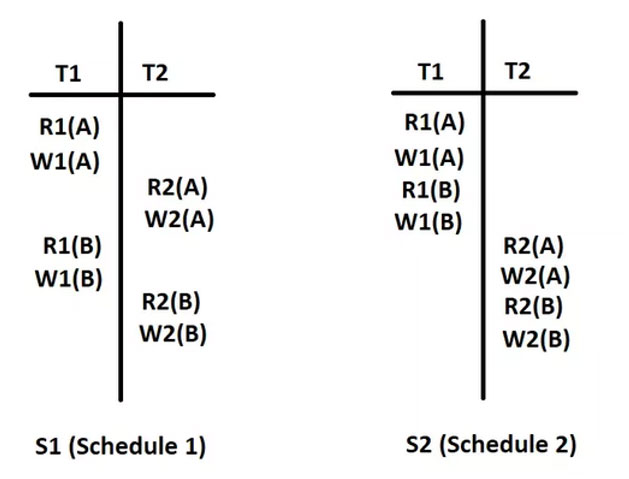What is Serializability in DBMS? Types, Advantages, and Significance
What is Serializability in DBMS? Types, Advantages, and Significance: Serializability can be called a process used for finding the correct non-serial schedules in the database. It basically helps maintain the consistency in the database and often relates to the isolation features of a transaction. There is a solid sort of inconsistency caused by non-serial schedules in DBMS for those who didn’t know.
In simple words, it helps in finding out whether the non-serial schedule is finalized or not. This post will talk about serializability in detail with a proper explanation. Go through the complete post and try to grab as much information as possible.
Also See: Differences between SQL Vs MySQL
What is Serializability in DBMS? Types, Advantages, and Significance
What are the main Types of serializability?
There are two types of serializability about which we will tell you in detail below:
- View-Serializability
View Serializability can be defined as the schedule same as a serial schedule without any overlapping transactions. They are the same transactions in the two schedules that view similar data values.

For example, there are two schedules in the above picture named as S1 and S2. The Serial Schedule is S2 in this case. If we talk about S1, the read operation is performed on data item R2 (A) once it is written by the T1 transaction. This way the data A works similarly as data item B during the transaction operation. The thing we want to tell the viewers is these schedules are conflict equivalent.
Also See: Difference Between DBMS and RDBMS
Why there is a need for view serializability?
Almost everyone who knows programming understands that a serial schedule causes no inconsistency due to no concurrent transactions. However, things are completely different in the case of a non-serial schedule that can cause inconsistency in the database as lots of transactions run simultaneously. It is important to ensure that the schedule is consistent when the prescribed one is a view serializable.
Many people might think it is best to go for a serial schedule instead of identifying whether a non-serial schedule is serializable. The answer to this question is a straight no as the system’s resources are fully used due to concurrent applications of transactions.
Also See: Pagination in SQL Server, MySQL and Oracle with Examples
- Conflict Serializability
This type of serializability is the same as a serial schedule where respective transactions are equipped with the same sets in chronological order without overlapping. Have a look at the below example for knowing view serializability below:

Here, the Serial Schedule 2 (S2) is equipped with both the transaction that initializes the same data named R1 (A) in T1. On the other hand, W2 (B) have a write operation with the same transaction and data in T2.
It means both of these schedules are View Serializable Schedule. An amazing fact we want to tell the readers is all the conflict serializable are view serializable, but each of view serializable aren’t conflict serializable.
Also See: Explain Database Schema and its Types
Why do we need conflict serializability?
Conflict serializability is greatly required in the simple algorithm for checking important things. It is essential to check the view serializability that perfectly relates to NP-full issues. It can turn to be a blessing for finding whether a non-serial schedule is conflicted or not.
All types of serializability have an importance that should be accessed correctly for finding great results. We are pretty assured you understand how important serializability is in the DBMS.
What are the major Advantages of Serializability in DBMS?
We believe it is very important that everyone should know what kind of benefits bring by serializability. That’s why, our team has mentioned it in detail below:
- The most significant benefit is this technique can be used quite conveniently and quickly. Additionally, there is no difficulty that one faces during the customization process in any manner.
- The serialized classes have required a sort of flexibility for letting the constant evolution of object schema in an application.
- You can find many technologies like RMI, Java Beans, and EJB that greatly depend on serialization.
- It can also act as a technique to exchange objects between C++ and JAVA libraries with third-party vendors’ help.
- There is no need to be a pro for effectively understanding the prospect of serializability.
Also See: Different Sql Functions With Examples
What are the Disadvantages of serialization in DBMS?
Unfortunately, there are few disadvantages of serialization about which most people doesn’t prefer to talk. We have prescribed about it in detail below:
- It is strongly recommended to not using serializability with large-sized objects, especially overhead ones. The reason behind that is the garbage collection in the system can be delayed with it.
- The serializable interface offers no fine-grained control over the access of objects. However, this issue can be eliminated by using the complex externalizable interface.
- It isn’t recommended to use for applications that required concurrent access without utilizing extra APIs.
What is the Significance of serialization in DBMS?
The main thing that proves the importance of serialization is the need to complete one transaction before beginning another one. This process ensures that the concurrent transactions are the same as one where the transactions are executed in a particular order.
The availability of serializability will make sure that proper access to the database is performed with the help of reading and writing operations. We hope you now understand how much serializability is important in DBMS.
Also See: Data Definition language (DDL ) in DBMS with Examples
Conclusion
In simple words, serializability can be called a similar output as interface gets from a serial schedule for the same quantity of transactions. It is a guarantee that the set of transactions is executed perfectly over numerous items. In DBMS, it is called isolation that ensures correctness in the database perfectly. This post has tried to provide all the important information regarding serializability for better execution.
If you have any queries regarding serializability, we suggest writing about it in the comment section.

Leave a Reply